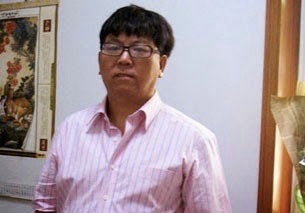Taipei, June 8, 2021 – Chinese authorities must release imprisoned journalist Lü Gengsong immediately, and ensure that he receives necessary medical care, the Committee to Protect Journalists said today.
Lü’s health has deteriorated while in prison, according to a report by the Chinese human rights news website Minsheng Guancha (Civil Rights and Livelihood Watch) and the journalist’s wife, Wang Xue’e, who told CPJ in a phone interview that, during a prison visit on May 22, he looked fragile and had lost a large amount of weight.
“Many of his teeth have fallen out and he couldn’t handle the cold,” Wang said. “Without proper medical examinations, we couldn’t tell what was wrong with him.” She told CPJ that Lü, who is 65 years old, has received medication for his diabetes and high blood pressure, but said that doctors have refused to examine him further or treat him for any other health issues.
Lü is serving an 11-year sentence at Changhu Prison in Zhejiang province, following his arrest in 2014 and conviction for “subverting state power” in his freelance writing on human rights issues in China, according to CPJ research. He is also a member of the China Democratic Party, a banned opposition group.
“Chinese authorities’ utter lack of humanity in allowing the health of an imprisoned journalist like Lü Gengsong to crater is sickening,” said Steven Butler, CPJ’s Asia program coordinator, in Washington, D.C. “Lü should receive immediate medical care and be released on medical parole so he will not die in prison.”
According to that Minsheng Guancha report, prison officers in Zhejiang often retaliate against inmates who, like Lü, have refused to plead guilty; such retaliation can include limiting inmates’ purchases from prison canteens, denying their monthly phone calls to their families, and forcing them to attend pro-government classes and news broadcasts.
In 2017, authorities denied a request from Lü’s lawyer to release the journalist on medical parole due to his diabetes, high blood pressure, and failing gallbladder, according to news reports.
CPJ called Changhu Prison for comment, but no one answered.
In 2017, Chinese journalist Yang Tongyan, who had been seriously ill for several years in prison, was granted medical parole when he was terminally ill, and died three months after his release. Also that year, Chinese Nobel Laureate and political writer Liu Xiaobo died of liver cancer shortly after being released on medical parole.
In March, Chinese journalist Wang Jing, who was recently released after nearly five years in prison for reporting on human rights issues, told CPJ about being tortured and receiving inadequate medical treatment at a prison in Jilin province.
On December 1, 2020, CPJ found that at least 47 journalists were imprisoned in China, making it the worst jailer of journalists worldwide for the second year in a row.
